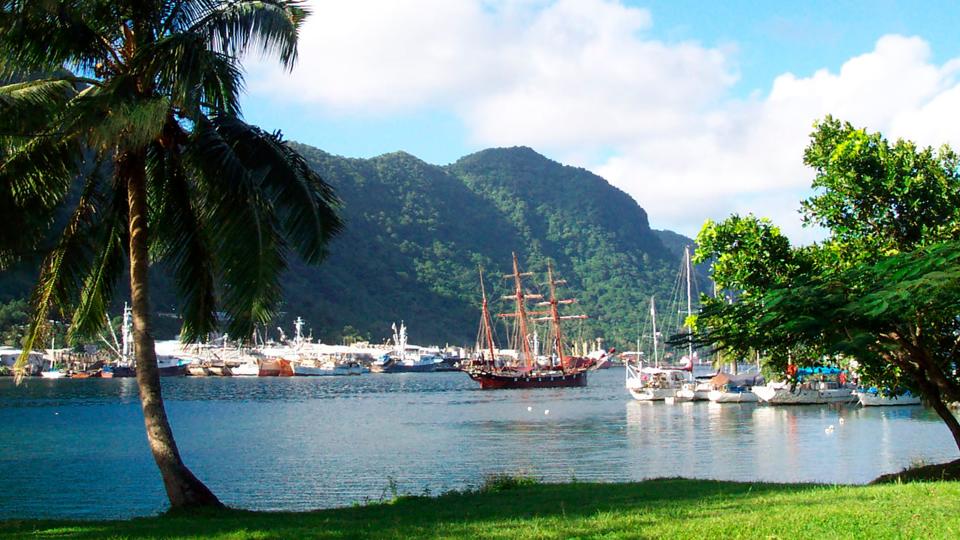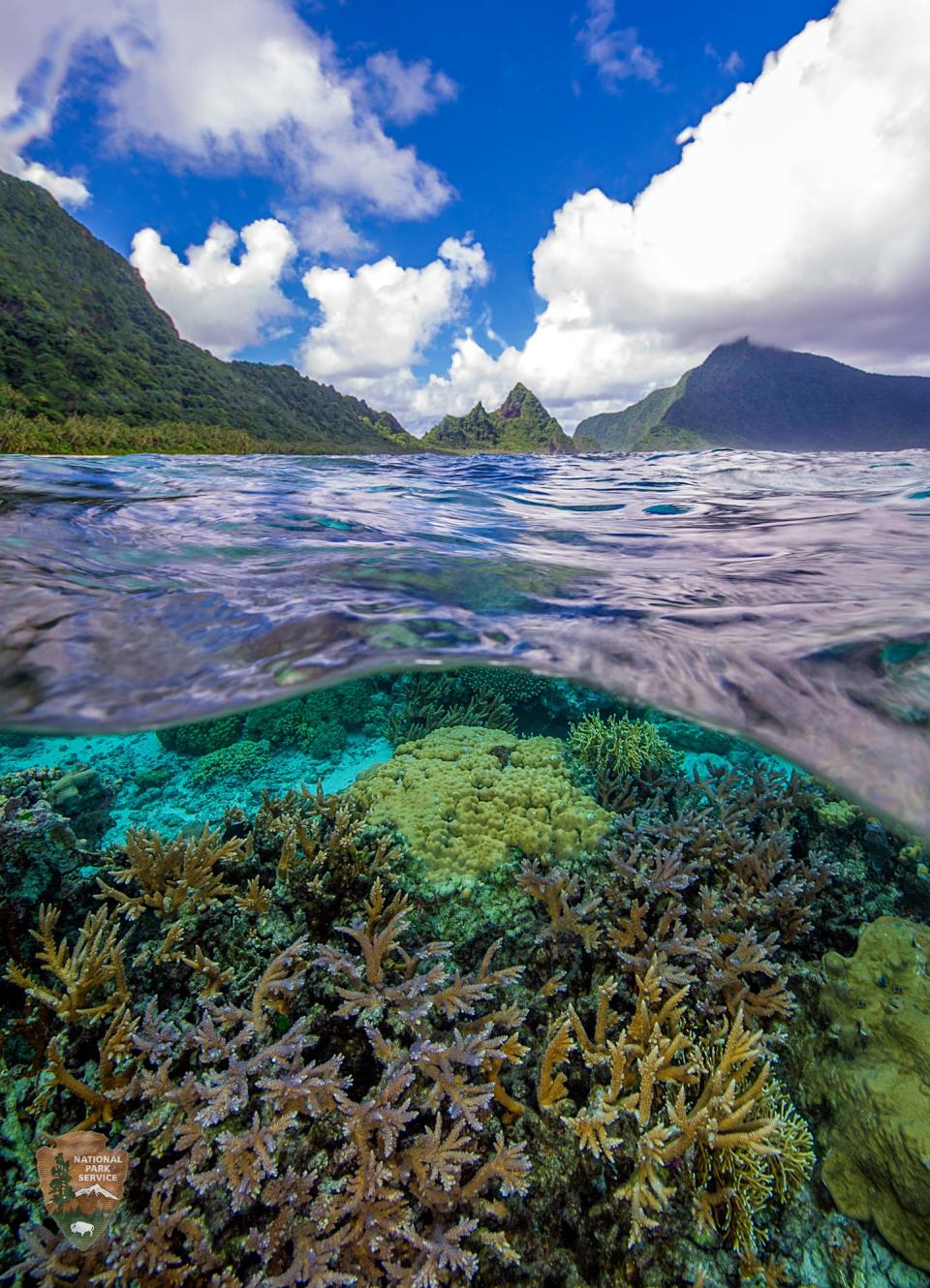These American Samoa residents supported Jason Palmer over Joe Biden. Here's why.
- Oops!Something went wrong.Please try again later.
Nearly 5,000 miles off the coast of California, residents on a tropical island stunned the country on Tuesday when they didn't exclusively support President Joe Biden in their 2024 caucus.
Jason Palmer, a Baltimore entrepreneur running a longshot campaign against the president, appeared to win the territory of American Samoa by just 11 votes, 51-40. However, the men technically tied in terms of the delegates they received in the presidential race, each taking home three.
For Biden, the moment was a small blip on an election night otherwise marked by resounding victories. But for organizers of the caucus, it highlighted how little attention most politicians pay to the people living on the 80-square-mile stretch of the South Pacific.
“I’m not shocked at all,” Patrick Ti'a Reid, chair of the territory’s Democratic Party, said of the result. “The rest of the country might be, but I’m not.”
People in American Samoa, a U.S. territory, feel removed from the nation's political system because they can’t vote in general elections, Reid explained. Just 91 of the territory’s 50,000 residents participated in Tuesday’s caucus.

And many of those who backed Palmer did so simply because of his campaign’s presence there. While Palmer never stepped foot on the islands, he held four virtual town halls for residents leading up to the race. He also promoted his campaign through social media ads and had volunteers phone bank for him.
“He gave American Samoa the attention that it deserved,” said Miracle Sene, an 8th grade science teacher who helped run the campaign in the territory. “Even though we're a small island. We had someone running for president that actually reached out and conversated with the people.”
Palmer's presence
Avauski Leatigaga, a 19-year-old studying criminal justice at American Samoa Community College, was among the group of 51 people who gathered to support Palmer on Tuesday. He's a former student of Sene’s and initially heard about Palmer’s campaign after visiting her.
When he attended Palmer’s virtual meet-and-greet on Friday, Leatigaga was struck by the businessman’s education proposals.
Leatigaga admitted that he didn’t know much about Biden, other than that he was the current U.S. president. It didn’t matter. Palmer was a small-scale candidate, but he was interacting with people living in American Samoa.
“It meant a lot,” he said of the choice Palmer gave residents on the island. “We don't usually have these types of things here. To actually be able to vote in a primary election, it made me feel honored.”

Other caucus attendees learned about their right to participate in the Democratic election because of Palmer’s campaign.
Leatigaga’s best friend, Dora Amber Malila, 19, originally thought the caucus was about Palmer. She didn’t realize Biden was running until the vote.
“When they had the results, I was surprised that there were people voting for Biden,” said Malilia, an accounting major at the community college
Biden visited American Samoa in 2016, while he was vice president, for 90 minutes as his plane was refueling on a journey from Hawaii to Australia. He hasn’t been back to the territory since, and his campaign had a minimal presence there this election season.
Even with the lack of campaigning, the vote was close. After all, only a few dozen Americans participated.
“It sounds like a huge like blow up, but it was a small turnout,” Reid said, noting that the loss doesn’t necessarily have broader implications for Biden “Palmer actually organized and had a presence here. Biden got those folks just based on being Biden.”
Palmer’s path to victory in American Samoa was similar to Michael Bloomberg’s 2020 effort. The former New York City mayor scored an unlikely victory over Biden and Sen. Bernie Sanders, I-Vt., during that year’s Democratic presidential caucus after campaigning in the territory.
Reid and Sene both worked for Bloomberg in the 2020 election, and they said it was among the first times a presidential candidate devoted any attention to the American Samoa. The billionaire's campaign focused on voter registration efforts, and more than 300 people participated in the caucus that year.
But in 2024, Palmer’s campaign has given Reid hope about the future of Democratic activism on the island.
“When candidates actually organized, even in small territories like ours, it's a benefit not just for the campaign, but it's also a benefit for the party, as a whole,” Reid said. “We should be celebrating democracy in action."
This article originally appeared on USA TODAY: These American Samoa voters didn't support Joe Biden. Here's why.

